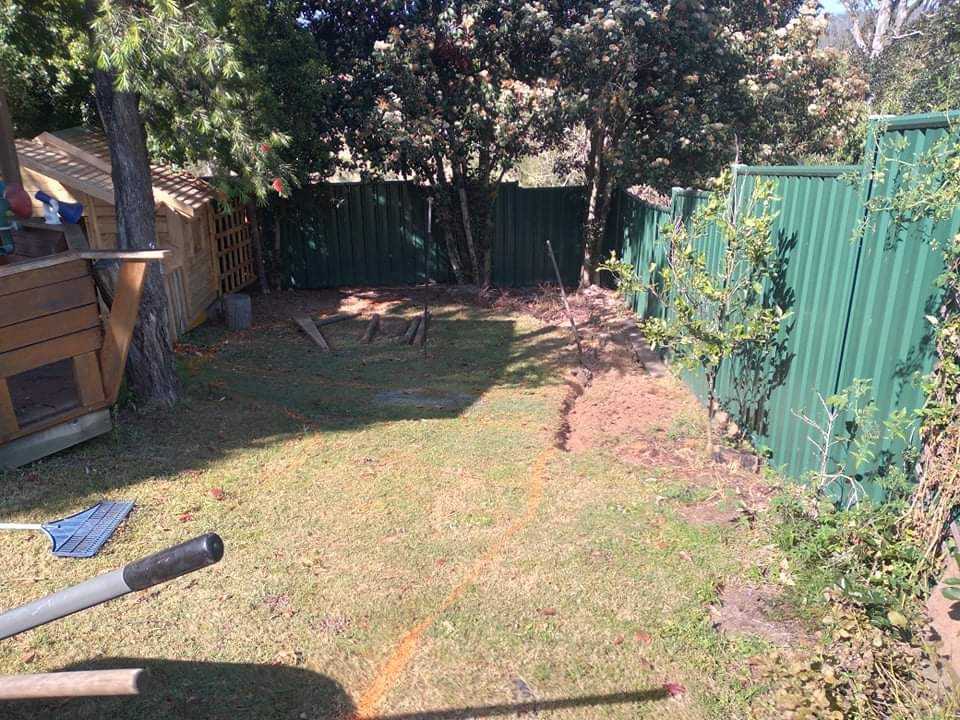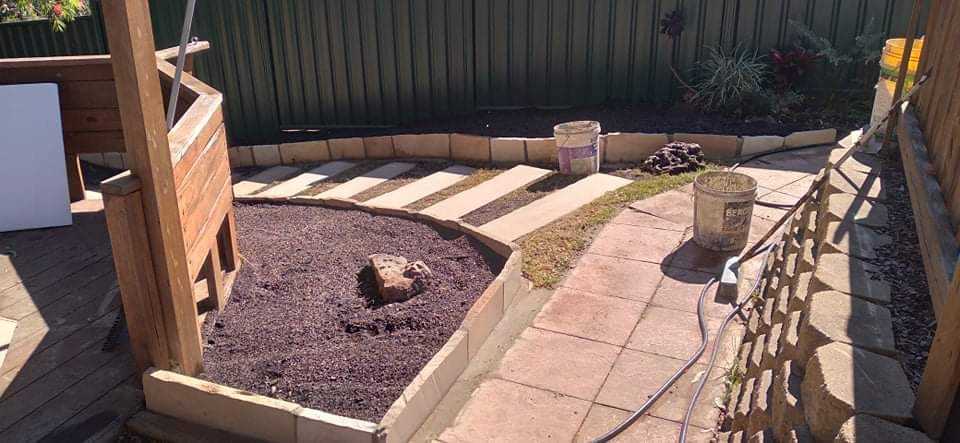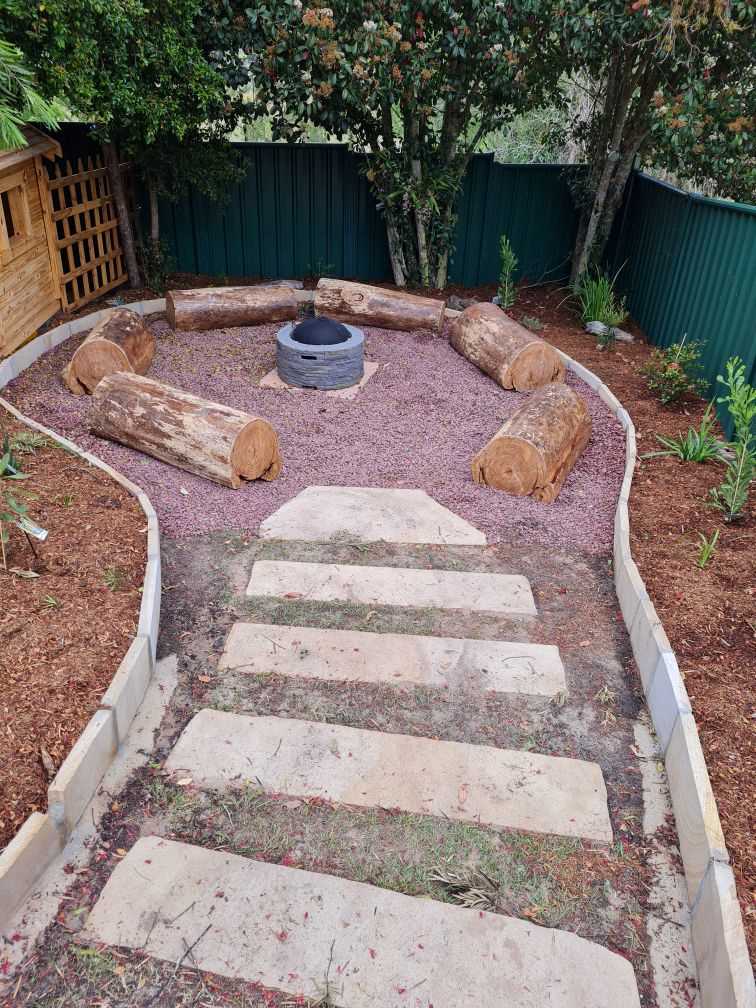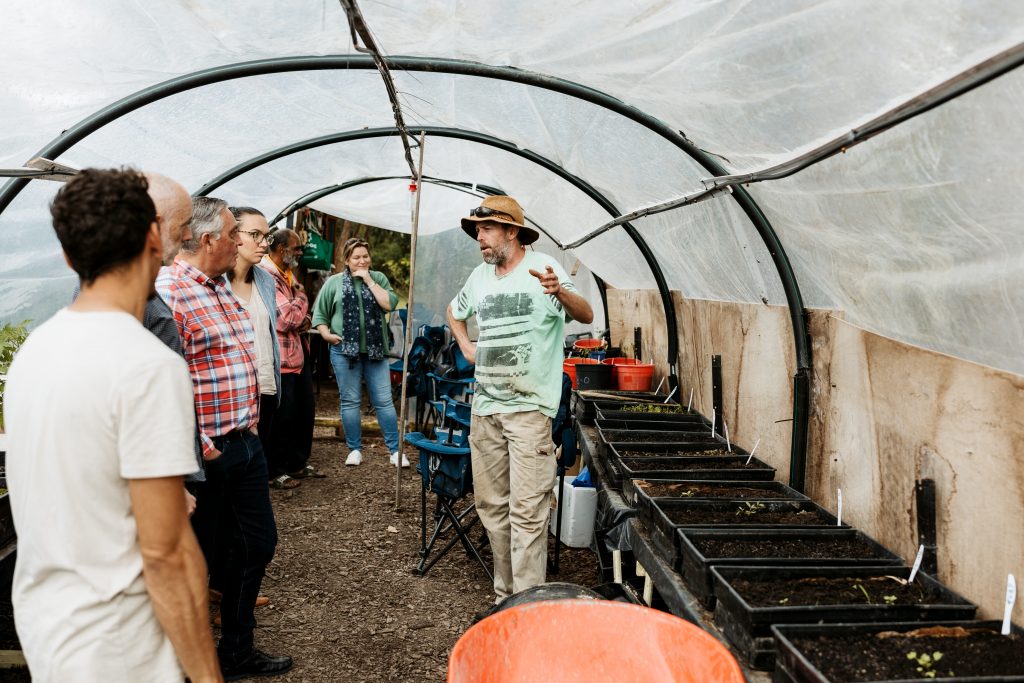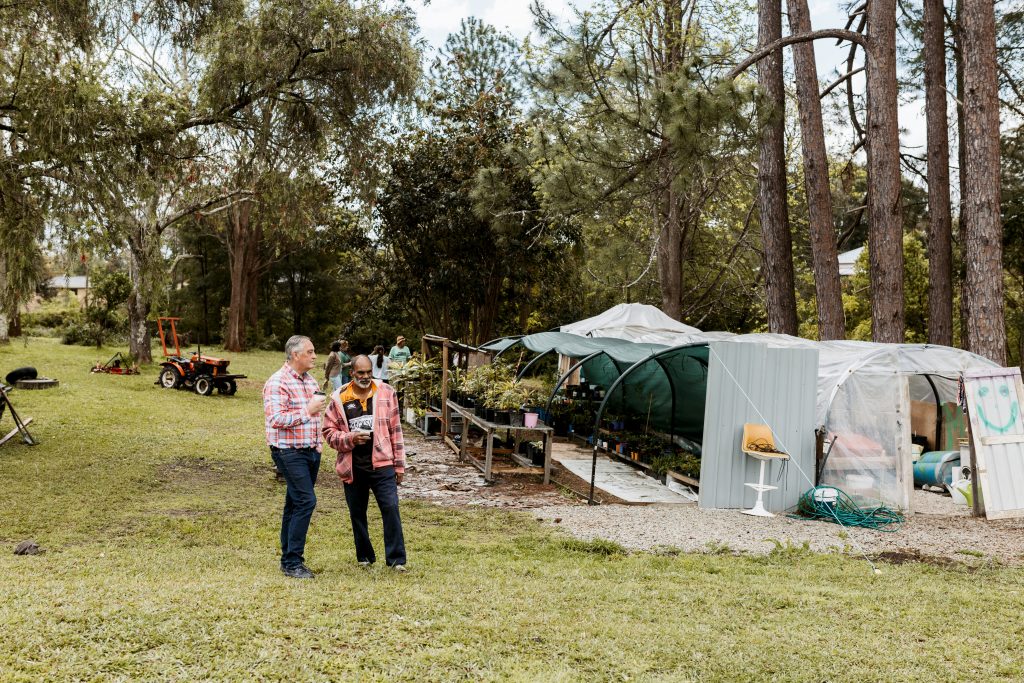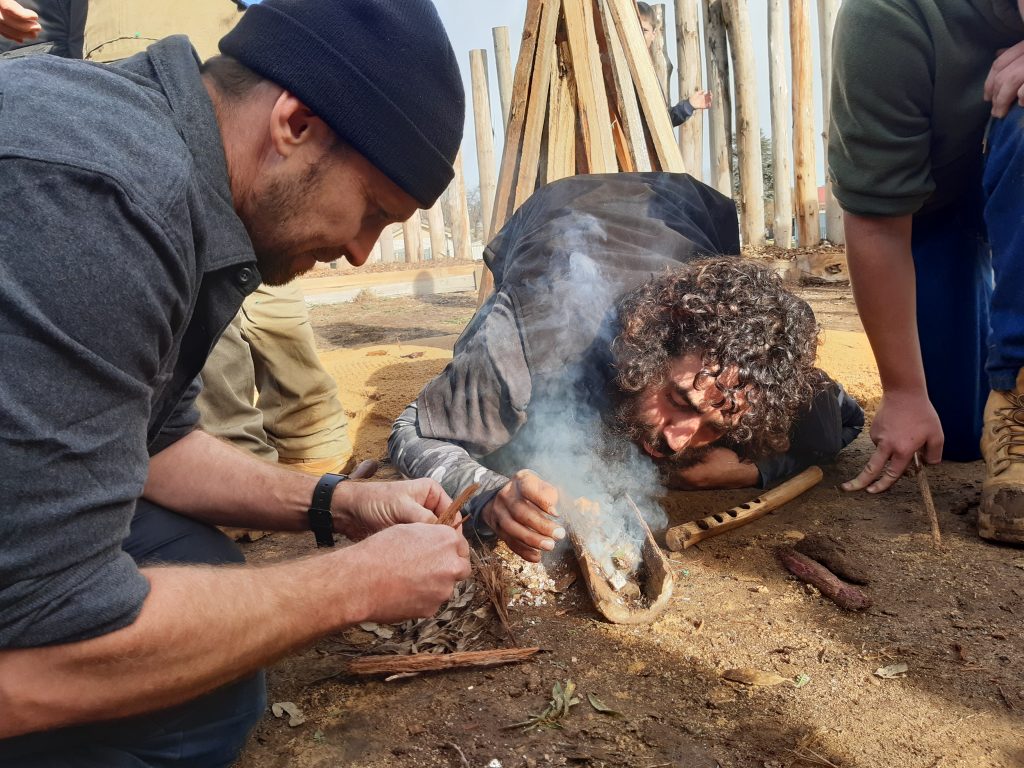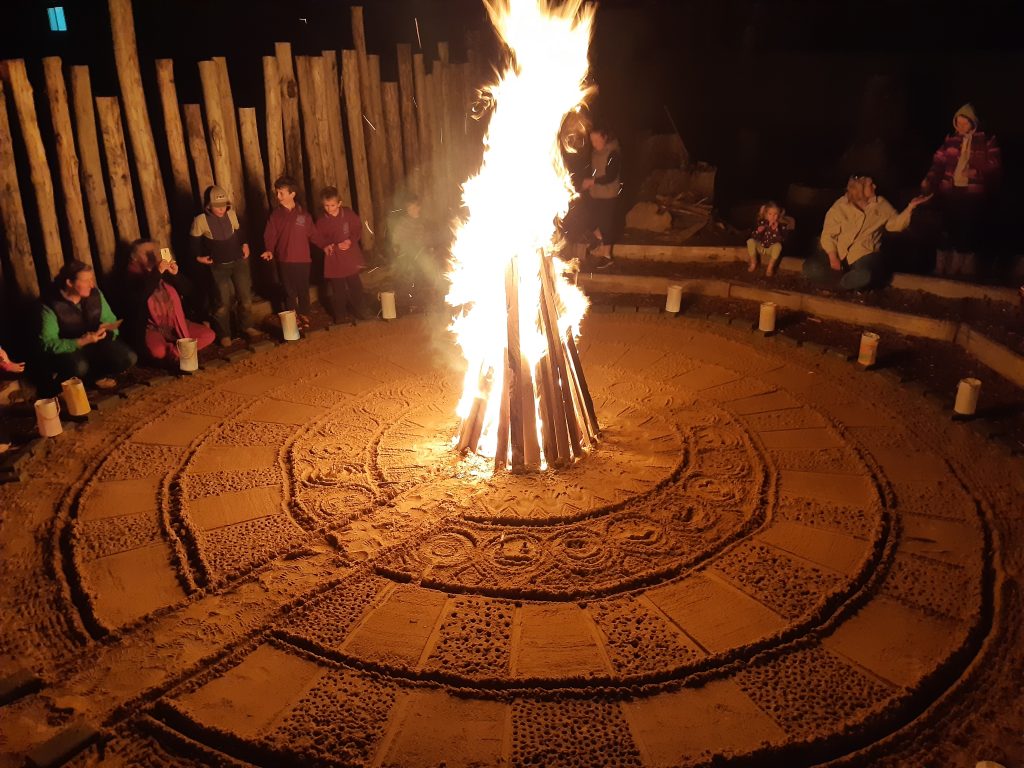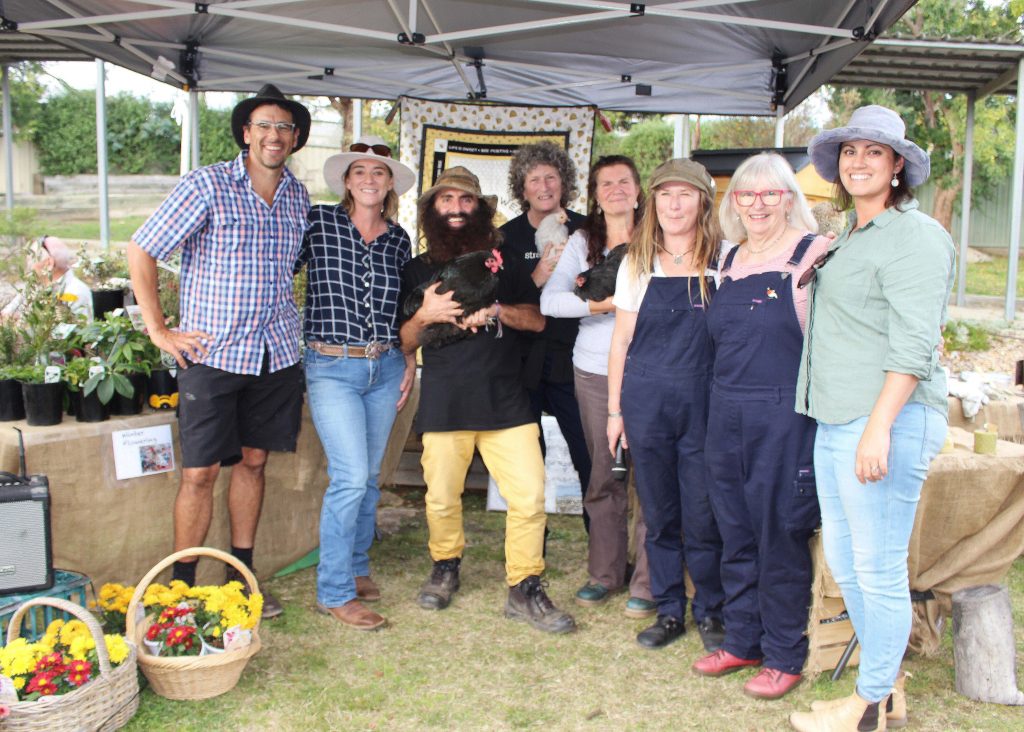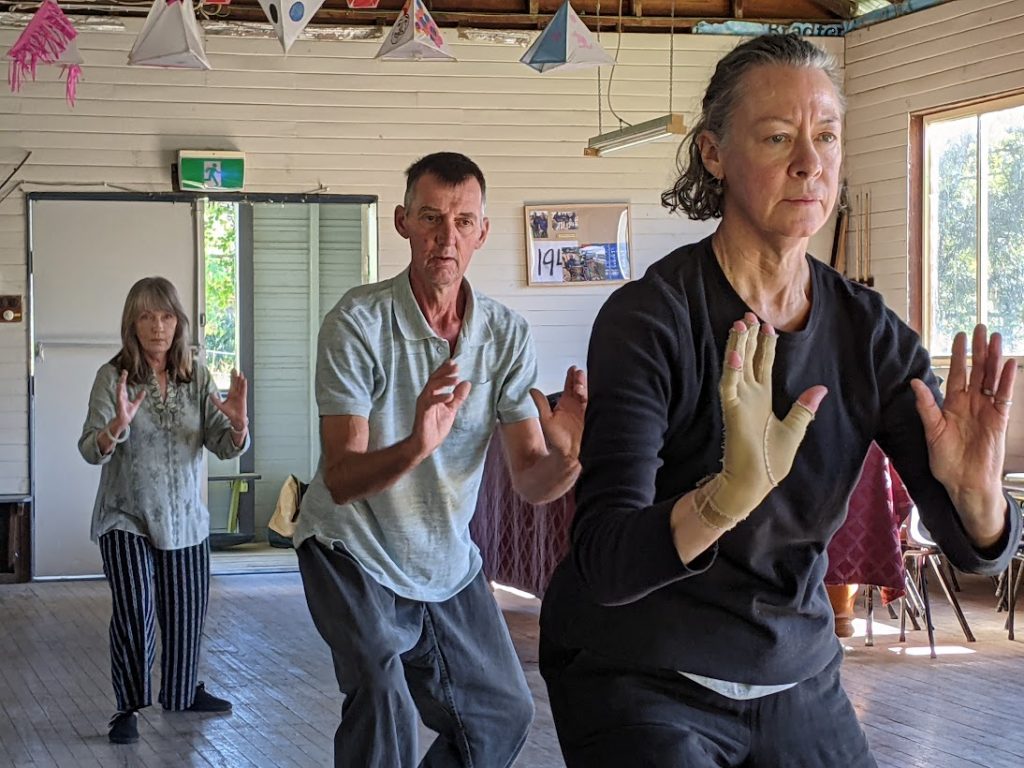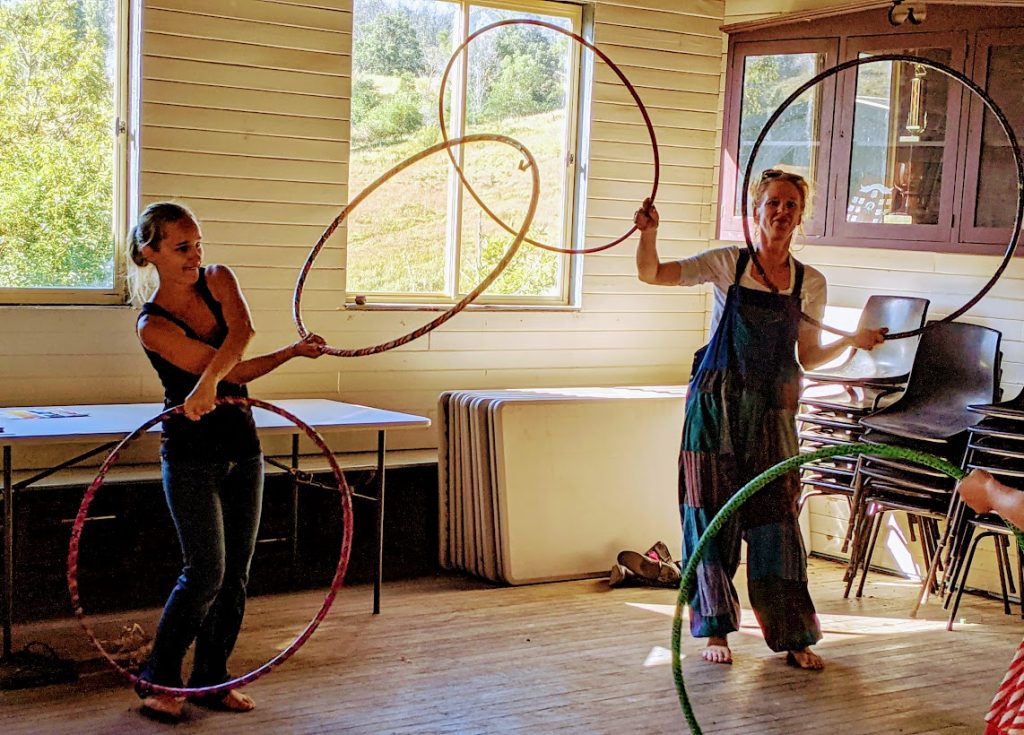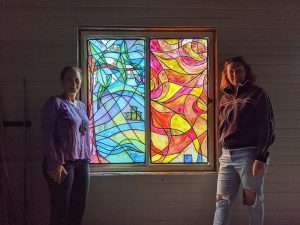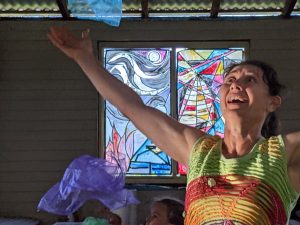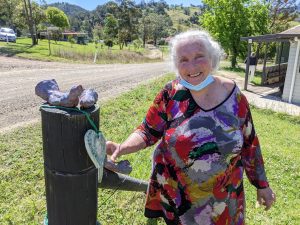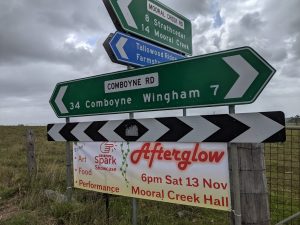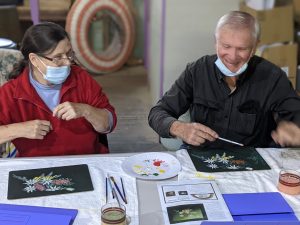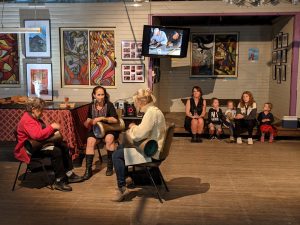Foundation for Rural & Regional Renewal (FRRR)
FRRR announced today that they have appointed two facilitators in the Shoalhaven region to support the ongoing delivery of their Investing in Rural Communities Futures program.
These positions are being funded using part of the $1.3 million investment made by the Australian Government, through the Black Summer Bushfire Recovery Program, which FRRR announced in November 2022.
The Investing in Rural Community Futures (IRCF) program has operated in the Shoalhaven and South Coast area since 2020, thanks to support from The Snow Foundation and Bendigo Bank, through their Community Enterprise Foundation. It is designed to help increase the capacity of the myriad of not-for-profit organisations who are so critical to the sustainability and vibrancy of the area.
Over the last three years, not-for-profits in Nowra, Ulladulla, Bateman’s Bay and more recently the Bay and Basin communities have come together to develop a roadmap of the assistance and skill-building that will help local NFPs to prepare for, respond to and recover from natural disasters, as well as the opportunities in the community. The most recently Federal Government funding means that support can now extend to Lake Conjola and Kangaroo Valley, areas that were severely affected by the Black Summer Bushfires.
The appointment of the two facilitators is the latest stage in the roll out of the funding from the Australian Government. That funding is also being used to support leadership and skill development, such as participation at the Art of Hosting workshop which is underway at Willinga Park in Bawley Point this week.
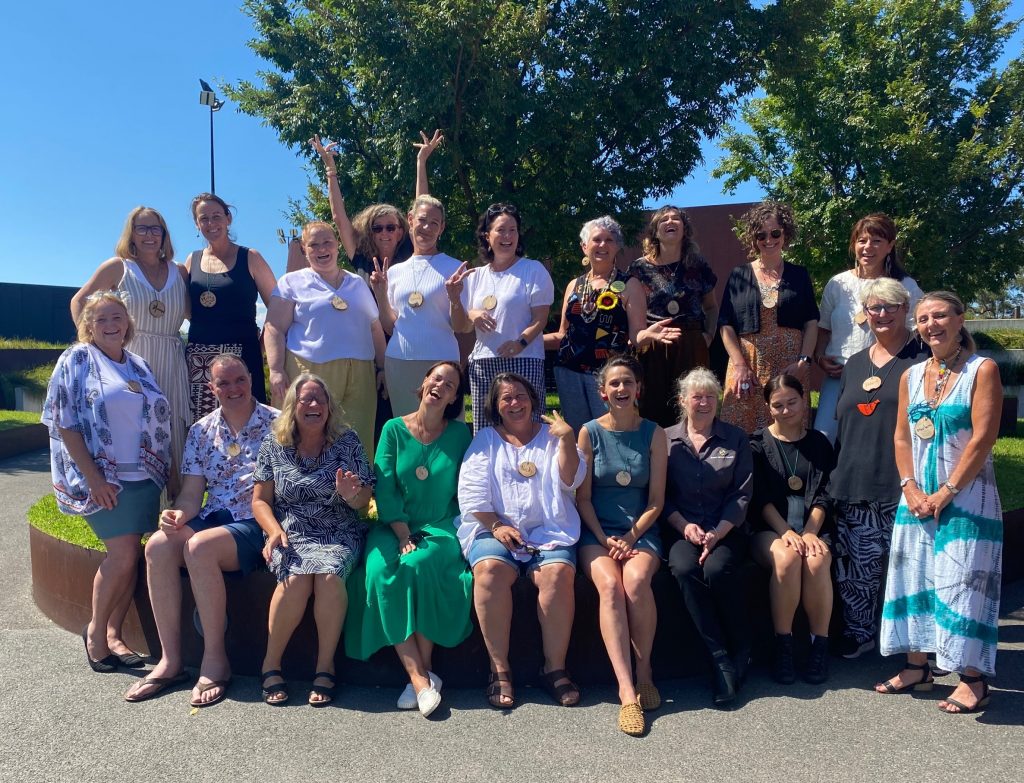
Attendees at Art of Hosting workshop 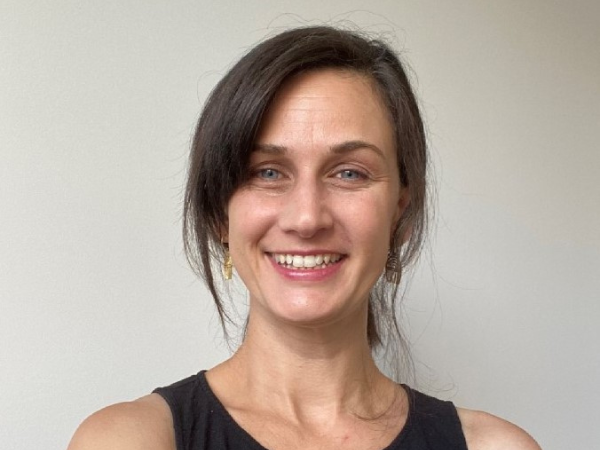
Kate McBride, Bay and Basin Facilitator 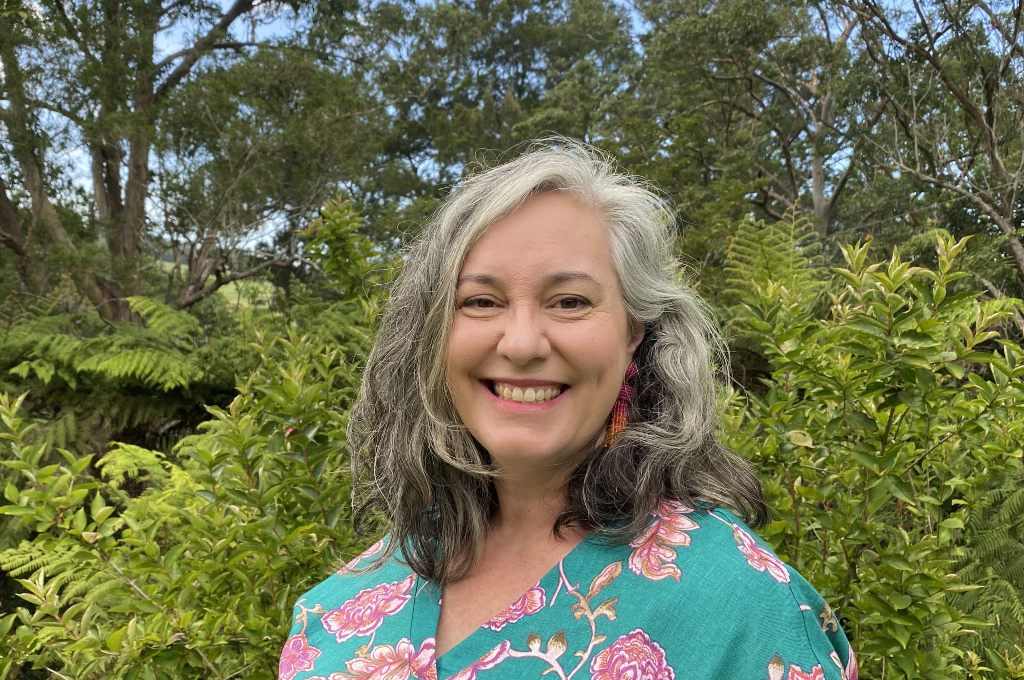
Meg Stratti, Nowra and Kangaroo Valley Facilitator
Meg Stratti will be working with communities in Nowra and Kangaroo Valley. She has lived in the Shoalhaven for the last 10 years, working to support local communities primarily through roles in adult education.
Kate McBride, who will work with Bay & Basin communities has lived on Yuin Country for around 20 years, and brings more than 15 years’ experience in capacity building and community engagement within not-for-profits (NFPs), grassroots community organisations and local government sectors.
Meg and Kate join Monique Carson (looking after Ulladulla and surrounds) and Jules Klugman (Batemans Bay) in working with community groups across the South Coast.
FRRR’s IRCF Program Coordinator for the South Coast, Carolyn Ardler, says that the additional Government support is a great opportunity to build upon the work they have been doing in the local communities with the support of philanthropic partners through the IRCF program.
“This workshop is the first chance that we’ve had to bring the facilitators together with local community leaders. All of them are attending the Art of Hosting workshop, which will enhance everyone’s ability to engage in conversations about the issues that matter. Together with the roadmap, this will ensure we’re all on the same page and can continue to work together to ensure local leaders have the tools they need to work towards their goals and priorities.
“This session is just one example of how we will continue to use this program to make sure the communities themselves are leading the conversation when it comes to their recovery,” Ms Samuels explained.
Matt Dell, President of Business Milton Ulladulla and Community Connect Southern Shoalhaven, says it’s rewarding to see the funding having such a direct benefit on the Shoalhaven communities.
“Enormous progress has been made in our local areas to recover after the devastating Black Summer fires. The IRCF program has been vital in supporting the community to rebuild and reconnect. It is absolutely essential the ICRF program continues with additional resources to empower our recovery and future resilience.”
Other upcoming initiatives include a leadership training program, which is being led by the Australian Rural Leadership Foundation, plus other sessions prioritised by the local community.
To find out more about the IRCF program in your community or to get involved, visit ircf.frrr.org.au or contact FRRR on 1800 170 020.
The community of Copmanhurst in the Clarence Valley in New South Wales is a strong and resilient group of around 300 people. In 2019/2020, Copmanhurst was severely impacted by the Black Summer bushfires, as well as flooding. For so many in the area this created a stressful environment. Many families were forced to evacuate and sadly leave livestock and other animals behind. Between the financial and emotional stress and hardship caused by these disasters, the community also saw a rise in mental health incidents.
For the youngest residents, stressful family situations, orange smoky skies and the loud noises from helicopters landing behind the preschool was causing a lot of anxiety.
Copmanhurst Pre-School wanted to create a space that would support the recovery of young children and provide a place nurtures respectful sharing of thoughts, ideas and knowledge. Their plan was to construct a Healing Circle that included a native garden. To help achieve this goal, the Pre-School secured a $8,650 grant through The Yulgilbar Foundation Fund.
They were able to establish the Healing Circle and also repair and upgrade a memorial of a past student. The memorial stone was moved to the Healing Circle and the family was very pleased to be included and remembered.
The garden was created under the guidance from local Elders and Ngroo, a local Aboriginal education program, to incorporate native plants and ideas for the healing circle including logs sourced from Bundjalung Country.
Since completing the project, the average day now begins around the healing circle for a talk before everyone goes off to play. This gives the children and educators an emotionally meaningful way to start the day in an area they all feel, safe, secure and supported.
Because of COVID lockdowns and restrictions, there was a delay on the opening celebrations for the new space. The Pre-School wanted to invite all the community services to the opening so they could acknowledge and thank them for all the hard work they did to keep their community safe during the fires and floods.

FRRR today welcomed a contribution of $150,000 from the Newcrest Sustainability Fund, which will go toward flood-recovery in communities affected by the ongoing flood emergency across the Central West of NSW.
FRRR’s General Manager Partnerships and Services, Sarah Matthee, said that it is great to see corporations who have operations across remote, rural and regional Australia providing significant and tangible support to flood-affected communities.
“Organisations like Newcrest are an important part of the economic and social infrastructure in many remote, rural and regional communities. Their staff live and work in these regions, they understand the challenges that are faced and the support that will be needed. It’s wonderful to have them contributing to our flood recovery appeal.
“This is both a swift, and a slow moving disaster, but it is one that is having an enormous impact across many communities. Recovery will take a long time and each community’s needs will evolve over time. These funds, which will be distributed through FRRR’s Prepare and Recover stream of our Strengthening Rural Communities program, means that funding will be there to support local community groups and NFPs when the time is right,” Ms Matthee said.
Read more about what else Newcrest is doing to support flood-affected communities.
We would greatly appreciate any additional donations to our flood appeal.
Earlier this year, the FRRR team heard directly from Kempsey Shire Council, who had recently received a $56,960 grant for the Macleay Valley River to the Sea Festival through the Future Drought Fund’s Networks to Build Drought Resilience program, co-funded by the Australian Government and a private donor.
The festival was a creative way to increase opportunities for diverse people and communities to participate in networking events. A series of farm gate tours was also a great way to improve regional branding and recognition of local food agri-systems. The festival built knowledge and understanding of the risks posed by drought and climate change through workshops for primary producers and broadly contributed to building a positive community culture and strengthened connections.
The Kempsey Shire Council presentation also highlighted the broader impact of floods. Having experienced 19 climate disasters in a decade, Kempsey was labelled ‘the most disaster-prone region in Australia’ by The Australian in 2019. Since then, there have been four flooding events, with three of them taking place in 2022 alone.
The Council team shared that an increasing number of farms were at risk of closure due to recent flooding events with around 45% of cattle in the lower Macleay leaving the shire due to continued wet and a 25%-35% loss of avocado trees. On top of that, there were large scale loss of oysters, flower production was impacted and mud fever, foot abscesses, slips and trips all became more common in horses.
The presentation gave a raw and up-to-date glimpse into the challenges being faced by those in the agricultural sector. It also highlighted that to be sustainable both economically and environmentally, change is needed. For agriculture to thrive, communities and agribusiness must be given the tools and resources they need to adapt.
The Macleay Valley River to the Sea Festival was a great example of this kind of opportunity in action, allowing farmers to share their stories and raise awareness around the positive on-farm diversification being achieved in environments impacted by climate change.
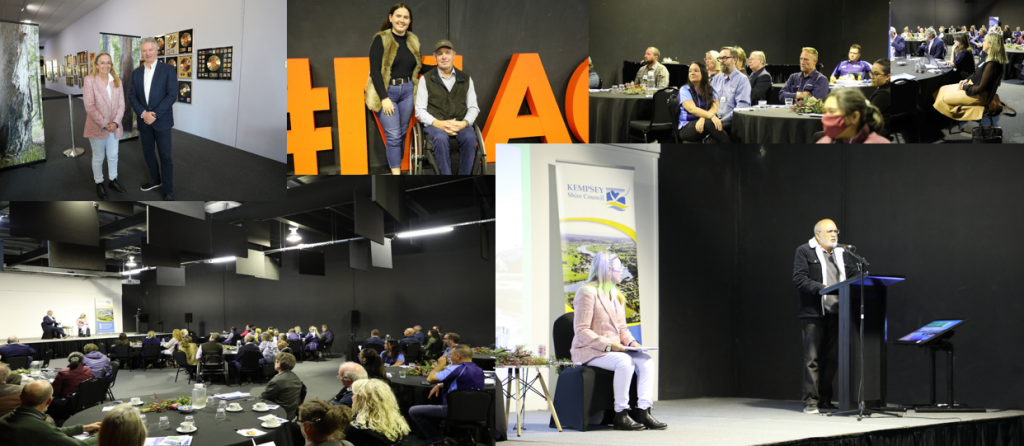
Woombah is located in the Clarence Valley, on Yaegl Country, and has a growing population including long-time residents, older residents and young families. Without a community hall or cafe, the community has long needed a place to gather, connect, share ideas and resources.
The Woombah Residents Association (WRA) created the Woombah Wellness Community Garden to provide a sustainable gathering space for locals to come together and share gardening tips, knowledge, stories and create community connections.
They received a grant last year from The Yulgilbar Foundation Fund grants program, which FRRR manages. It supports communities in the Clarence Valley and surrounding regions who have a desire and need to strengthen their capacity and resilience in response to the 2019/20 bushfires, flooding and continued challenges across the region.
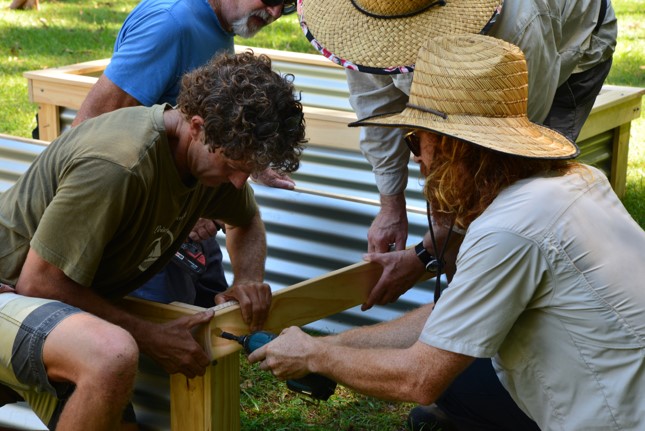
WRA used the $12,100 grant to create a series of promotional and educational videos to celebrate the recently established community garden and share the 2021 program of workshops and events with members, residents, community groups and wider social networks.
Six videos were developed to create a stronger online presence, encourage greater onsite participation, educate residents about the benefits of gardening, and engage their volunteers and members:
- Native Bee Hotel Workshop Promo
- How to Make a Native Bee Hotel
- Saturday, It’s Garden Day Promo
- Tunes in the Trees Highlights
- Gardener Profile Vicki
- Gardener Profile Cara
- Vicki’s Garden Map Promo
From developing creative video content with different members and groups in the community, to screenings virtually and at Woombah Residents’ Association meetings, the production of these resources helped deepen WRA’s engagement with the wider community. It also provided opportunities to build stronger relationships within the community garden team, by working together on this series of creative video projects.
“We are grateful for the support from FRRR and The Yulgilbar Foundation, and proud of the workshop activities and virtual resources that have built organisational capacity in the WRA’s Wellness Community Garden and increased awareness and engagement in environmental sustainability initiatives in our community.”
Berri Brown, President
On Gumbaynggirr Country
The Nambucca Valley in NSW was one of the first participating communities in the Investing in Rural Community Futures Program, which FRRR has been running with the support of VFFF since 2019. The program aims to help local not-for-profit organisations build their capacity so that they can better support the communities they serve.
One such group is Mujaay Ganma Foundation, which was established in memory of two strong, proud Gumbaynggirr women – Mardi Walker, Mujaay and Florence Ballangarry, Ganma. The Foundation grew from the need to bring back cultural strength and trust to people and families who are dealing with cancer. But it’s grown to offer far more than that, supporting Aboriginal people and their families with culturally friendly, emotional, physical and spiritual support. Through culture and sustainable practices Mujaay Ganma also endeavours to support a healthy lifestyle in the modern Nambucca Valley.
One of Mujaay Ganma Foundation’s goals is to create the Yuraal Guunumba Ngurraay: Gumbaynggirr Native Foods Community Garden Project, which will improve the wellbeing of local Gumbaynggirr Country and community. The garden will be a space where Elders can share cultural values and pass on traditional knowledge and skills to younger generations. It will also encourage students and youth to learn about native forest and riverbank regeneration and ecosystems. There is also a plan to help young people learn the identification and properties of native plants needed for regeneration of degraded country, seed collection and propagation and nursery management skills. Ultimately, this will ensure the passing on of cultural knowledge from Elders and promote its value to the wider community. In addition, the hope is that the garden will help to connect young Gumbaynggirr people to Country, strengthen a sense of community and build the skills of local community members, leading to meaningful employment and freedom from welfare dependence, which contributes to community wellbeing. Importantly it will contribute to a healthy lifestyle, culturally, physically and collectively.
Ultimately the project aims to build the capacity of young Gumbaynggirr people, encouraging them to contribute to a more collaborative and cohesive community. This will be achieved by strengthening the passing on of cultural knowledge between Elders and the younger generations, strengthening pride in culture and in the identity of the young.
Furthermore, the wider Nambucca Valley community would have the opportunity to learn from the custodial people enabling more respectful appreciation for the original culture and abundant natural resources, so sustaining a healthy environment into the future.
However, with only being established in 2019, the organisation recognised that it needed to build its capacity before it could embark on such an ambitious project. By training local Gumbaynggirr coordinators, the project will support community leadership. These trainees could become well versed in project management and able to constructively give back to community in the future. These trainee project coordinators could learn these contemporary skills through being mentored by experienced project managers, learning how to negotiate resources, funds and engaging with other organisations by working with their mentors, learning ‘on the job’, at the same time as being supported in their culture by the custodial Elders of Country. This approach was chosen, as successful learning experiences for community people have involved learning while observing and engaging in doing.
This fit well into the priorities of the IRCF program, which included people, strategy systems and structure and sector efficiencies. They therefore applied to FRRR for a grant to enable them to hire and mentor two Gumbaynggirr people as trainees, who could then take on management of all the complex logistics involved in implementing the Yuraal Guunumba Ngurraay garden project. This was also an opportunity to help ensure that young Gumbaynggirr people are safe, connected to Country and have meaningful work.
With the support of a $38,443 FRRR IRCF grant, funded by VFFF, two trainee project coordinators were recruited and have been learning on the job. Their work has included:
- learning about workplace expectations and creating a culturally safe working environment;
- strengthening their connection to Country and culture, with Elders taking them on Country and experiencing ceremony;
- setting up systems and administrative work, including writing policies and keeping records of the planning and implementation of the many components of this complex project;
- creating a food garden under guidance of a horticultural mentor with experience working in the Aboriginal community at Miimi Aboriginal Corporation, where they learnt about garden preparation, irrigation, planting seeds and transplanting seedlings in preparation for establishing the Yuraal Garden;
- learning about caring for Country from a Traditional Custodian with land management skills; and
- managing a successful Golf and Bowls Day fundraising event, which was successful not just in raising money but in creating an event where community could come together, learn more about Mujaay Ganma Foundation and have a good healthy time together.
The training of the coordinators and the future establishment of the Garden is highly collaborative and involved several community organisations, including:
- Miimi Aboriginal Corporation, who provided continual support of resources and consultation;
- Earth Trust and Yarranbella, with support from Miimi, who mentored the trainee coordinators as they learnt to negotiate and navigate between Aboriginal and non-Aboriginal systems, between organisations and students and teachers;
- Bowraville Innovative Social Enterprise Precinct (BISEP) who helped them negotiate Western institutions and regulations;
- Muurrbay Aboriginal Language and Culture Co-operative who provided continual support of resources and consultation, in particular around language and culture;
- Gagu Land Services will took participants onto Country to help learn about caring for Country and land regeneration;
- Yarranbella Environment Services who provided the horticulturist and registered teacher, who will help develop the training package needed for the garden to be created; and
- Nambucca Valley Council who provided land for where the garden project will occur.
The Foundation was able to leverage the grant to secure wage subsidies and additional funding that meant the trainees have, with guidance, developed job descriptions, run recruitment information sessions, established a viable workplace for new recruits and learnt to supervise new staff.
Janette Blainey, Project Manager says they are proud to still be operating and to have succeeded in expanding.
“This grant we received under FRRR’s IRCF funding gave us the support and improved capacity to successfully apply for a further grant to establish a Native Seedbank and to train other young Gumbaynggirr people in custodial land management.
“While we still face challenges from the impacts of dispossession, racism and continuing colonising attitudes within the community, Mujaay Ganma Foundation has become stronger and better able to contribute more to the community. Our young trainee coordinators are growing in confidence and have pride in their culture and community, and are learning more about their culture and their Country. They are ready to step up when needed. Other young people have acquired knowledge, skills and a positive attitude to gardening an extensive food producing garden for the community to access. We also have two employees who are gaining project coordination skills. It’s also great to see improved relationships between Elders and younger community members.”
For more inspiring stories like this, head to our FY 2021/22 Annual Review.
In response to the recent impact of drought, bushfire and COVID, Bombala Preschool in NSW wanted to increase resilience and strengthen intergenerational connections. They decided to work collaboratively to codesign and construct a community garden space, at the same time as enhancing permaculture skills.
Their idea was to collaborate with the local high school, Public School, St Joseph’s Catholic School and 11 associated organisations to create and maintain a community-based urban and Indigenous agriculture project and recovery program on land adjoining the preschool.
The aim was to create and integrate a nature-based play space and permaculture garden for the preschool with an inclusive intergenerational program, involving seniors, staff, parents, teenagers and the preschoolers in growing and sharing food, as well as showcasing sustainable practices. Blended into this, they were hoping to include culture, arts, bushfoods, a fire ceremony and a language program to celebrate the region’s Indigenous heritage.
The concept was to have the whole project overseen and aligned to a mental health plan to assist the region in its recovery from drought, bushfires and COVID. The link between improved mental health, increased community connectedness and resilience through community gardens is well documented.
Thanks to support from FRRR through a $15,000 SRC grant, funded by Jeunesse Kids Foundation, plus funding from other donors, it started out strongly. Despite COVID, Project Manager Dan Bakker and Cultural Advisor Nathan Lygon, were appointed in Winter 2020, with preliminary site works completed by May 2021.
Community involvement ebbed and flowed. While a DIY lasagna-garden (a no-dig, no-till organic gardening method) workshop, thermal composting demonstration and formal project tour were convened in late 2020, they were poorly attended due to the escalation of the pandemic anxiety at the time, but there was still strong support to keep the project moving forward. The involvement of students and staff from Bombala High School and St Joseph’s Catholic Primary School led to both schools committing significant efforts. All year groups of St Joey’s eagerly and actively attend the fortnightly double-day sessions, with the high school having established a core group of over 15 students, each of whom now have assumed operations roles in the patch.
Students, staff and volunteers (often hand-in-hand with preschoolers) diligently worked together on activities including:
- Extensive excavation, shaping and lasagna-garden building of soils;
- Haulage of all hardwood materials, aggregates, fertilisers and construction materials;
- Significant terrace, path and congregation areas preparation;
- The creation of more than 75 square metres of seasonal garden bed;
- The trench digging and placement of a 200 bush-pole perimeter fence;
- Reconstruction of a pre-existing garden shed;
- Building an outdoor multi-purpose work-bench / kitchen;
- Commenced construction of cultural fire circle;
- Full replacement of the adjoining fence line with KidSafe approved permeable pool fencing;
- Arterial irrigation system installation;
- Initial laying of 45 metres of arterial path paving;
- The construction of a walk-in chicken coop and 25 square metre chicken run; and
- Peri-secure sheep fencing of one acre block opposite.
Daniel Bakker, Project / Events Manager from Bombala Preschool reported that some 18 months into the venture (and in the face on unprecedented challenges), the project’s initiation has been viewed a considerable success with construction activities, social / cultural events, seasonal planting and systems-integration unfolding ahead of schedule and beyond the standard expected in the drafting of the project.
“Preschool staff and students have established a deep and caring connection with the garden. Almost all planting and harvesting has involved children. St Joey’s ‘big-buddies’ students have bonded with many of the preschoolers, giving agency for respective students to assume mentor roles. Likewise, high schoolers (mostly male) have exhibited caring capacities rarely seen by their teachers,” he explained.
Several key inclusive events have been convened, doing much to extend and lift the social profile of the facility. River Cottage Aust Chef and ABC South East presenter, Paul West, worked with students to make a meal using produce from the patch and contributed to a Solstice Fire Mandala with students and preschoolers, before co-initiating the ceremonial Indigenous fire with Nathan Lygon. The first spark was tindered using traditional Indigenous fire making techniques graciously shared by Nathan. Lanterns prepared by the preschool outlined the fire mandala, which was attended by 65 family members.
In preparation for this event, a cultural name was chosen for the project – Ngulla, meaning ‘plant-based food’ in the language of the Ngarigo region. This name was offered by an Elder of the Country and secured by the Cultural Advisor, Nathan, through culturally sanctioned channels.
Shortly thereafter, they hosted ABC Gardening Australia’s Costa Georgiadis for a day of site tours, recovery and sustainability themed workshops and a panel discussion. The discussion was MC’d by local journalist, Sophie Longden, with both Costa and local identities providing input on the topic of social resilience, regenerative agriculture and environmental recovery. More than 100 locals attended the event, something unprecedented in the history of the preschool.
While COVID hampered the project significantly and in multiple ways, the project has been a great success and the groundwork is laid for ongoing projects and partnerships. With lock-up and full systems integration approaching, the facility is looking well-placed for staff to safely allow children to freely explore and integrate with the playscape, giving the project increased formal and informal education capacity.
For more inspiring stories like this, head to our FY 2021/22 Annual Review.
The small, rural town of Mooral Creek is around 260 kms north of Sydney. Following the devastation of the 2019/20 bushfires, the Mooral Creek Hall & Progress Association Committee embarked upon a project to bring the whole community together to connect, reflect and support each other through the bushfire recovery process.
With the help of a $25,000 Strengthening Rural Communities grant, supported by the Fire Fight Australia Fund, came Creative Spark – an arts project aimed at encouraging creative expression and developing confidence and skills in a range of artistic forms. Through a series of visual and performance arts workshops in 2021, the project brought together the people of Mooral Creek and neighbouring communities. The project culminated in an uplifting Showcase event that celebrated the community’s achievements.
Project organisers coordinated the delivery of 14 different workshop series over 55 sessions, all while negotiating the difficulties of local flooding and COVID restrictions. More than 75 community members participated in at least one workshop.
Participants benefited from the skill, enthusiasm and encouragement of 11 local facilitators who aimed to shift focus from loss and trauma to positivity and inspiration. The facilitators themselves benefited from being able to share their knowledge, expertise and creative skills, while strengthening their community relationships. Sadly, the Fire Chief passed away during the project, however his wife found solace in delivering her painting workshop, and old and new friends were able to journey with her through grief and creativity.
Some of the resulting artworks from the many workshops directly reflected the subject of the bushfires and gave the town many beautiful keepsakes. In one workshop, participants painted the windows of Mooral Creek Hall with a stained-glass effect. They depicted their homes surrounded by colours, lines and shapes that evoked fire, smoke, landscape and nature. The overall effect for the Hall was transformative – creating a vibrancy and cathedral-like space, which can now be appreciated from both inside and outside the hall. The result of another workshop was a painting on a nearby utility pole – a simple memorial of the Black Summer Bushfires, in recognition of the work of the RFS and particularly, their Fire Chief. It depicts a koala, a goanna and a crimson rosella, some of the local fauna that suffered from the impact of the fires.
Other workshops had a stronger focus on coming together to learn physical skills, with a focus on mental wellbeing, such as ‘The Magic Circus’, Tai Chi and drumming workshops. The Middle Eastern Dance workshop saw women of all ages develop skills and collaborate over many weeks to choreograph a belly-dancing performance. The performance, titled Out of the Ashes, was described by many at the Showcase event as the best thing they had ever seen at the hall.
As well as exhibiting the artworks created during the workshops, the Showcase also displayed photographs taken during and immediately after the fires. This proved very thought-provoking, with many locals using them as a talking point to share their experiences of the bushfires. Also on display were several portraits commissioned from a local artist, which recognised community members who experienced significant loss from the bushfires, and were gifted to the sitters following the event.
The benefits of the Creative Spark project were far-reaching and effectively assisted the community to work through the trauma and experiences of living through the bushfires. Many residents were able to be involved in different ways – whether as a workshop facilitator or participant, having their portrait done, or as an audience member at the Showcase event. The breadth of arts activities and incredible scope of the project created a vibrant energy in the community and residents were amazed at what they were able to achieve. Several activities have continued throughout 2022 – evidence of the ongoing benefits of the project.
For more inspiring stories like this, head to our FY 2021/22 Annual Review.
On Jukembal, Kamilaroi and Bundjalung Country
The TenterLIFE Suicide Prevention Network was formed in 2019 in the northern NSW rural community of Tenterfield. By bringing members of the community together to talk and learn about suicide prevention, the organisation hopes to reduce the number of suicide and suicide attempts in the area.
Tenterfield has been through many traumas over the past few years. Drought, fires and more recently COVID have taken their toll on the community. The effects of the 2019/2020 Black Summer bushfires are still being felt by the community, with the landscape still blackened. This affects people’s mental health.
Tragically, there were 154 suspected or confirmed suicide deaths reported in NSW from 1 January to 28 February 2021. This is similar to the number of deaths reported within the same time period in 2019 and 2020, so this is an ongoing issue that needs dedicated focus.
Chairperson of TenterLIFE, Lexie Sherren, explained that the numbers for the Inverell / Tenterfield area are among the highest in the state.
“By informing communities of the drastic need to be more aware of the situation, hopefully these numbers can reduce,” she explained in their application.
The compelling case, plus the support of a range of local stakeholders, including health, allied health, education and charity sectors, plus community members with first-hand experience of mental health and suicide impacts, coupled with their track record, saw TenterLIFE awarded a $25,000 Strengthening Rural Communities (SRC) grant, thanks to the support of a private donor. The funds went toward printing flyers, purchasing t-shirts and windcheaters to be worn on their public walks and running Suicide Prevention First Aid training. Having spent less money on the shirts and jackets, FRRR approved a variation that meant they also purchased a PA system to use at events, rather than borrowing from one of the members.
The group has held regular ‘Walk ’n’ Talk’ events, marked White Wreath Day where they remembered those lost to suicide, as well as participated in Stress Down Day, where there was a talk on stress management and then the group sang and blew bubbles.
“All the comments were positive and I don’t think I’ve seen everyone attending smile and laugh so much. We played People Bingo, had an A-Z Scavenger Hunt and played lots of games.
“These events instil a sense of belonging for community members. Knowing someone cares can provide relief for a person who may be suicidal. Giving voice to their thoughts and expressing their feelings aloud, knowing someone is there to listen, can be truly lifesaving. Isolation or feeling alone can also increase suicidal tendencies, while connection with another person can have the reverse affect,” Ms Sherren said.
The group has more activities planned throughout the year.
For more inspiring stories like this, head to our FY 2021/22 Annual Review.
The Foundation for Rural & Regional Renewal (FRRR) will host two free capacity building workshops for volunteers, Board members and paid staff members of community groups and not-for-profits in Taree and Wingham, as part of the Investing in Not-for-Profit Capacity in Regional NSW (INFPC) program.
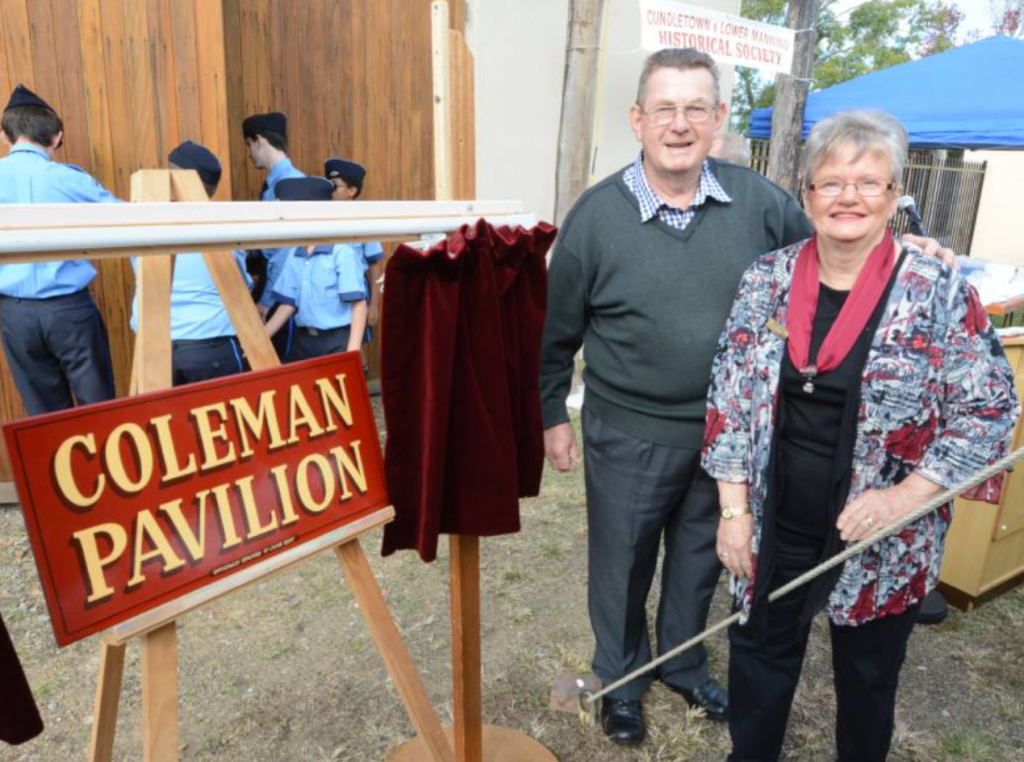
The program, which is funded by Paul Ramsay Foundation, aims to enhance the capacity of local grassroots not-for-profit organisations, helping them to respond and thrive in the face of current challenges, including recovery from the fires, floods and impacts of COVID.
These workshops have been specifically created based on input from community groups at workshops last year. The two sessions will focus on building the confidence and capacity of community group Board’s, exploring practical solutions for success and sustainability and engaging strategies for recruitment, retention and management of volunteers.
| Workshop 1: Governance Skills: Build your Board’s confidence & capacity Date: Tuesday 29 November 2022 Time: 9:00 am – 4:00 pm (catering included) Venue: The Auditorium, Club Taree, 121 Wingham Road, Taree Register: https://bit.ly/3FpMy3Q | Workshop 2: Engaging & Sustaining Volunteers: Recruitment, retention & management strategies Date: Wednesday 30 November 2022 Time: 9:00 am – 1:00 pm (catering included) Venue: The Auditorium, Club Taree, 121 Wingham Road, Taree Register: https://bit.ly/3DEnAfG |
The sessions are free but places are limited, so attendees are encouraged to register now. These highly interactive workshops will be facilitated by Nicole Weber, who has 25 years’ experience as a manager of teams, in mostly Human Services organisations in the public, private and not-for-profit sector.
For queries about the workshops, email info@frrr.org.au or call 1800 170 020
Investing in Not-for-Profit Capacity in Regional NSW is an 18 month place-based program running in three bushfire affected communities, being Bega, Taree and Wingham, and Glen Innes. For more information visit https://frrr.org.au/investing-in-not-for-profit-capacity-nsw/.
In December 2021, FRRR awarded five grants totalling $150,152 to a range of community groups in Taree and Wingham. Projects responded to many of the issues raised during previous workshop sessions, including strategic and operational planning, marketing, revenue strategy and digital solutions to support volunteers and not-for-profit organisations.

